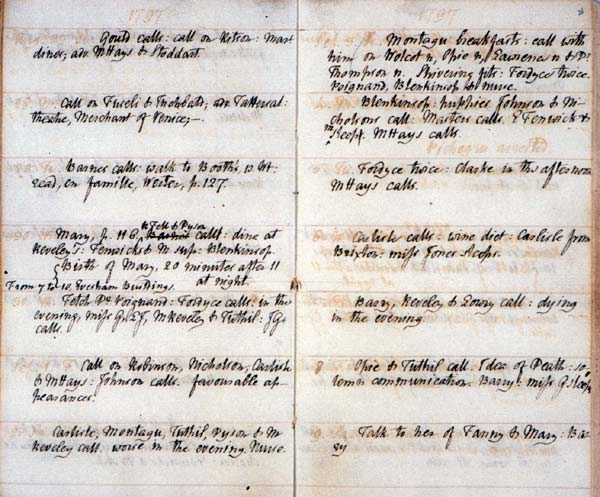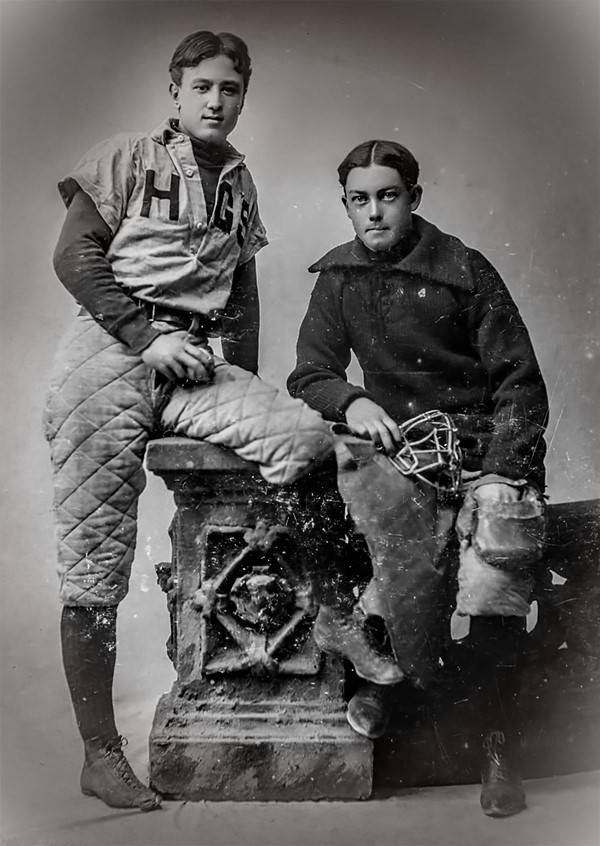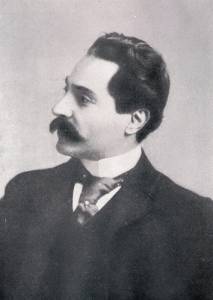|
A Dirge
"A Dirge" is a poetic dirge composed by Percy Bysshe Shelley. It was published posthumously in 1824 by his wife, Mary Shelley, in the collection ''Posthumous Poems''. The text has been set to music by Frank Bridge, Charles Ives, Ottorino Resphigi, Roy Ewing Agnew, and Benjamin Britten. Structure The rhyme scheme of the eight lines is abab cccb. The triplet of vain/strain/main in the second half of the poem adds to the sense of the piling up of emotions. It also has the effect of slowing down the poem. Summary The dominant themes of the poem are isolation, loneliness, and death. It is a scene of desolation and despair. The wind moans in a grief that cannot be expressed in words; the rain storm billows in vain; the trees are barren and their branches strain under the unceasing onslaught. A gloom pervades the world. A dirge is a song meant to invoke and express the emotions of grief and mourning that are typical of a funeral. Images of nature are used to symbolize the grief he feels, ... [...More Info...] [...Related Items...] OR: [Wikipedia] [Google] [Baidu] |
Posthumous Poems Percy B
{{disambiguation ...
Posthumous may refer to: * Posthumous award - an award, prize or medal granted after the recipient's death * Posthumous publication – material published after the author's death * ''Posthumous'' (album), by Warne Marsh, 1987 * ''Posthumous'' (EP), by The Banner, 2001 * ''Posthumous'' (film), a 2014 American-German romantic comedy See also * * List of people known as the Posthumous * Posthumus (surname) * Postumus (other) Postumus (Marcus Cassianius Latinius Postumus, died 269) was a Roman usurper and founder of the Gallic Empire. Postumus may also refer to: * Agrippa Postumus (12 BC – 14 AD), son of Marcus Vipsanius Agrippa * Postumus Junior (died 268), alleged ... [...More Info...] [...Related Items...] OR: [Wikipedia] [Google] [Baidu] |
Dirge
A dirge ( la, dirige, naenia) is a somber song or lament expressing mourning or grief, such as would be appropriate for performance at a funeral. Often taking the form of a brief hymn, dirges are typically shorter and less meditative than elegies. Dirges are often slow and bear the character of funeral marches. Poetic dirges may be dedicated to a specific individual or otherwise thematically refer to death. The English word ''dirge'' is derived from the Latin ''Dirige, Domine, Deus meus, in conspectu tuo viam meam'' ("Direct my way in your sight, O Lord my God"), the first words of the first antiphon (a short chant in Christian liturgy) in the Matins (a canonical hour before sunrise) of the Office for the Dead (a prayer cycle), based on (5:9 in the Vulgate). The original meaning of ''dirge'' in English referred to this office, particularly as it appeared within breviaries and primer prayer books. History In the late Medieval period, it was common for Western Christian lait ... [...More Info...] [...Related Items...] OR: [Wikipedia] [Google] [Baidu] |
Percy Bysshe Shelley
Percy Bysshe Shelley ( ; 4 August 17928 July 1822) was one of the major English Romantic poets. A radical in his poetry as well as in his political and social views, Shelley did not achieve fame during his lifetime, but recognition of his achievements in poetry grew steadily following his death and he became an important influence on subsequent generations of poets including Robert Browning, Algernon Charles Swinburne, Thomas Hardy, and W. B. Yeats. American literary critic Harold Bloom describes him as "a superb craftsman, a lyric poet without rival, and surely one of the most advanced sceptical intellects ever to write a poem." Shelly's reputation fluctuated during the 20th century, but in recent decades he has achieved increasing critical acclaim for the sweeping momentum of his poetic imagery, his mastery of genres and verse forms, and the complex interplay of sceptical, idealist, and materialist ideas in his work. Among his best-known works are "Ozymandias" (1818), "Ode ... [...More Info...] [...Related Items...] OR: [Wikipedia] [Google] [Baidu] |
Mary Shelley
Mary Wollstonecraft Shelley (; ; 30 August 1797 – 1 February 1851) was an English novelist who wrote the Gothic fiction, Gothic novel ''Frankenstein, Frankenstein; or, The Modern Prometheus'' (1818), which is considered an History of science fiction#Shelley and Europe in the early 19th century, early example of science fiction. She also edited and promoted the works of her husband, the Romantic poet and philosopher Percy Bysshe Shelley. Her father was the political philosopher William Godwin and her mother was the philosopher and women's rights advocate Mary Wollstonecraft. Mary's mother died less than a fortnight after giving birth to her. She was raised by her father, who provided her with a rich if informal education, encouraging her to adhere to his own anarchist political theories. When she was four, her father married a neighbour, Mary Jane Clairmont, with whom Mary came to have a troubled relationship. In 1814, Mary began a romance with one of her father's politica ... [...More Info...] [...Related Items...] OR: [Wikipedia] [Google] [Baidu] |
Frank Bridge
Frank Bridge (26 February 187910 January 1941) was an English composer, violist and conductor. Life Bridge was born in Brighton, the ninth child of William Henry Bridge (1845-1928), a violin teacher and variety theatre conductor, formerly a master lithographic printer from a family of cordwainers, and his second wife, Elizabeth (née Warbrick; 1849-1899). His father "ruled the household with a rod of iron", and was insistent that his son spend regular long hours practising the violin; when Frank became sufficiently skilled, he would play with his father's pit bands, conducting in his absence, also arranging music and standing in for other instrumentalists. He studied at the Royal College of Music in London from 1899 to 1903 under Charles Villiers Stanford and others. He played in a number of string quartets, including second violin for the Grimson Quartet and viola for the English String Quartet (along with Marjorie Hayward). He also conducted, sometimes deputising for Henr ... [...More Info...] [...Related Items...] OR: [Wikipedia] [Google] [Baidu] |
Charles Ives
Charles Edward Ives (; October 20, 1874May 19, 1954) was an American modernist composer, one of the first American composers of international renown. His music was largely ignored during his early career, and many of his works went unperformed for many years. Later in life, the quality of his music was publicly recognized through the efforts of contemporaries like Henry Cowell and Lou Harrison, and he came to be regarded as an "American original". He was also among the first composers to engage in a systematic program of experimental music, with musical techniques including polytonality, polyrhythm, tone clusters, aleatory elements, and quarter tones. His experimentation foreshadowed many musical innovations that were later more widely adopted during the 20th century. Hence, he is often regarded as the leading American composer of art music of the 20th century. Sources of Ives's tonal imagery included hymn tunes and traditional songs; he also incorporated melodies of the tow ... [...More Info...] [...Related Items...] OR: [Wikipedia] [Google] [Baidu] |
Ottorino Resphigi
Ottorino Respighi ( , , ; 9 July 187918 April 1936) was an Italian composer, violinist, teacher, and musicologist and one of the leading Italian composers of the early 20th century. List of compositions by Ottorino Respighi, His compositions range over List of operas by Ottorino Respighi, operas, ballets, orchestral suites, choral songs, chamber music, and transcriptions of Italian compositions of the 16th–18th centuries, but his best known and most performed works are his three orchestral tone poems which brought him international fame: ''Fountains of Rome (poem), Fountains of Rome'' (1916), ''Pines of Rome'' (1924), and ''Feste romane, Roman Festivals'' (1928). Respighi was born in Bologna to a musical and artistic family. He was encouraged by his father to pursue music at a young age, and took formal tuition in the violin and piano. In 1891, he enrolled at the Conservatorio Giovanni Battista Martini, Liceo Musicale di Bologna, where he studied the violin, viola, and compos ... [...More Info...] [...Related Items...] OR: [Wikipedia] [Google] [Baidu] |
Roy Ewing Agnew
Roy Ewing "Robert" Agnew (23 August 1891 – 12 November 1944) was an Australian composer, pianist, teacher and radio announcer. He was described as "the most outstanding of the early twentieth century Australian composers" by Morris Hinson.Hinson p. 6. Early life and education Agnew was born in Sydney on 23 August 1891, the son of Samuel Agnew, a cordial manufacturer, and his wife Maria Jane (née Miller). Agnew taught himself piano at an early age. He attended Chatswood and Hornsby public schools, and received his first formal music training from Emanuel de Beaupuis, an Italian pianist then-residing in Sydney. He received further instruction from Daisy Miller and Sydney Moss, and later briefly studied composition under Alfred Hill at the NSW Conservatorium of Music. He began working as a piano teacher in Marrickville in 1911. By this time, Agnew was already writing "strikingly original works" which abandoned "the limitations of key and tonal relationship."Helmrich His firs ... [...More Info...] [...Related Items...] OR: [Wikipedia] [Google] [Baidu] |
Benjamin Britten
Edward Benjamin Britten, Baron Britten (22 November 1913 – 4 December 1976, aged 63) was an English composer, conductor, and pianist. He was a central figure of 20th-century British music, with a range of works including opera, other vocal music, orchestral and chamber pieces. His best-known works include the opera '' Peter Grimes'' (1945), the '' War Requiem'' (1962) and the orchestral showpiece ''The Young Person's Guide to the Orchestra'' (1945). Born in Lowestoft, Suffolk, the son of a dentist, Britten showed talent from an early age. He studied at the Royal College of Music in London and privately with the composer Frank Bridge. Britten first came to public attention with the '' a cappella'' choral work '' A Boy was Born'' in 1934. With the premiere of ''Peter Grimes'' in 1945, he leapt to international fame. Over the next 28 years, he wrote 14 more operas, establishing himself as one of the leading 20th-century composers in the genre. In addition to large-sca ... [...More Info...] [...Related Items...] OR: [Wikipedia] [Google] [Baidu] |
John Keats
John Keats (31 October 1795 – 23 February 1821) was an English poet of the second generation of Romantic poets, with Lord Byron and Percy Bysshe Shelley. His poems had been in publication for less than four years when he died of tuberculosis at the age of 25. They were indifferently received in his lifetime, but his fame grew rapidly after his death. By the end of the century, he was placed in the canon of English literature, strongly influencing many writers of the Pre-Raphaelite Brotherhood; the ''Encyclopædia Britannica'' of 1888 called one ode "one of the final masterpieces". Jorge Luis Borges named his first encounter with Keats an experience he felt all his life. Keats had a style "heavily loaded with sensualities", notably in the series of odes. Typically of the Romantics, he accentuated extreme emotion through natural imagery. Today his poems and letters remain among the most popular and analysed in English literature – in particular "Ode to a Nightingale", "Od ... [...More Info...] [...Related Items...] OR: [Wikipedia] [Google] [Baidu] |
1824 Poems
Eighteen or 18 may refer to: * 18 (number), the natural number following 17 and preceding 19 * one of the years 18 BC, AD 18, 1918, 2018 Film, television and entertainment * ''18'' (film), a 1993 Taiwanese experimental film based on the short story ''God's Dice'' * ''Eighteen'' (film), a 2005 Canadian dramatic feature film * 18 (British Board of Film Classification), a film rating in the United Kingdom, also used in Ireland by the Irish Film Classification Office * 18 (''Dragon Ball''), a character in the ''Dragon Ball'' franchise * "Eighteen", a 2006 episode of the animated television series ''12 oz. Mouse'' Music Albums * ''18'' (Moby album), 2002 * ''18'' (Nana Kitade album), 2005 * '' 18...'', 2009 debut album by G.E.M. Songs * "18" (5 Seconds of Summer song), from their 2014 eponymous debut album * "18" (One Direction song), from their 2014 studio album ''Four'' * "18", by Anarbor from their 2013 studio album '' Burnout'' * "I'm Eighteen", by Alice Cooper commonly r ... [...More Info...] [...Related Items...] OR: [Wikipedia] [Google] [Baidu] |
British Poems
British may refer to: Peoples, culture, and language * British people, nationals or natives of the United Kingdom, British Overseas Territories, and Crown Dependencies. ** Britishness, the British identity and common culture * British English, the English language as spoken and written in the United Kingdom or, more broadly, throughout the British Isles * Celtic Britons, an ancient ethno-linguistic group * Brittonic languages, a branch of the Insular Celtic language family (formerly called British) ** Common Brittonic, an ancient language Other uses *''Brit(ish)'', a 2018 memoir by Afua Hirsch *People or things associated with: ** Great Britain, an island ** United Kingdom, a sovereign state ** Kingdom of Great Britain (1707–1800) ** United Kingdom of Great Britain and Ireland (1801–1922) See also * Terminology of the British Isles * Alternative names for the British * English (other) * Britannic (other) * British Isles * Brit (other) * Briton (d ... [...More Info...] [...Related Items...] OR: [Wikipedia] [Google] [Baidu] |







